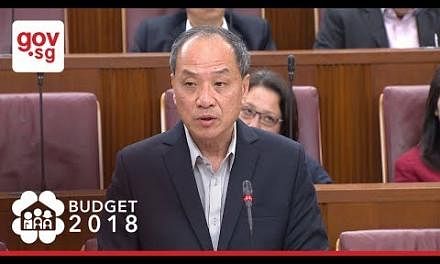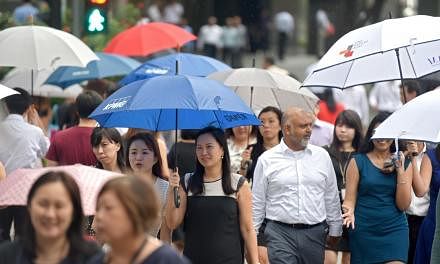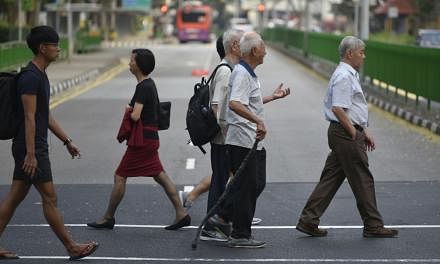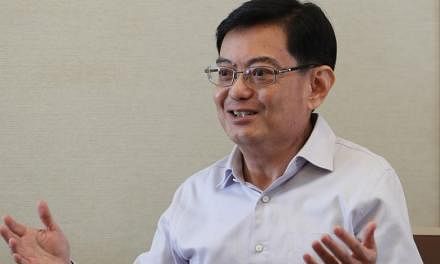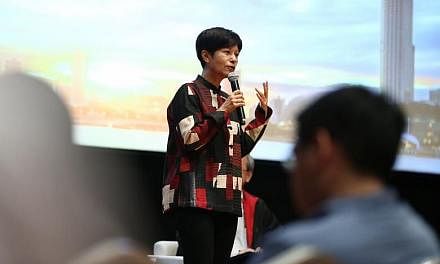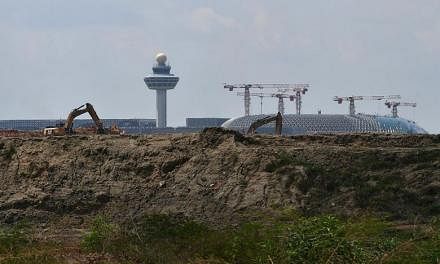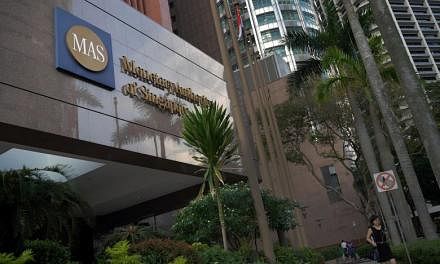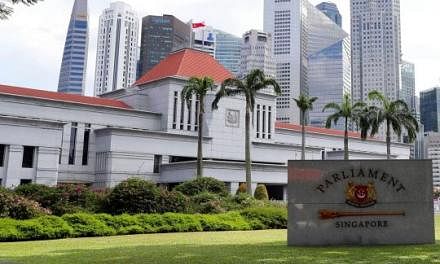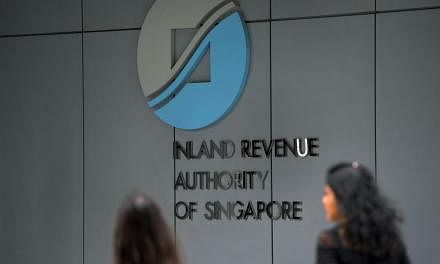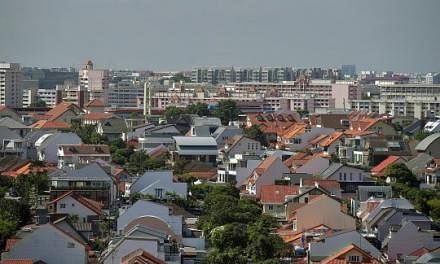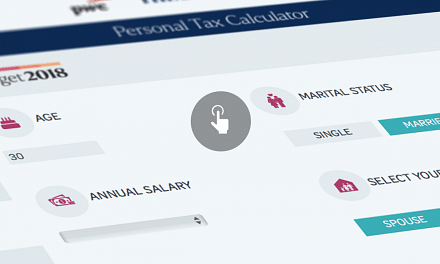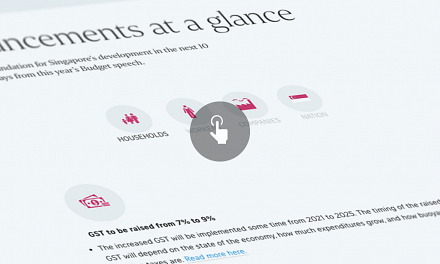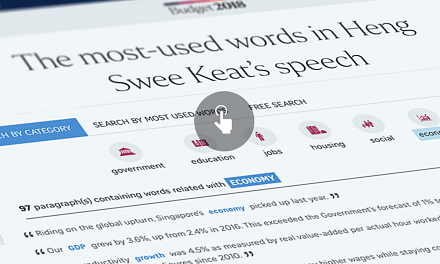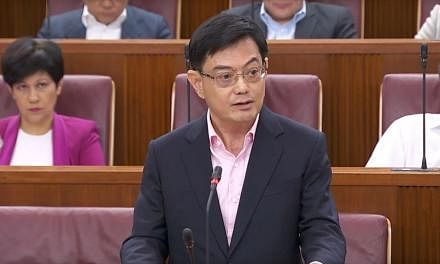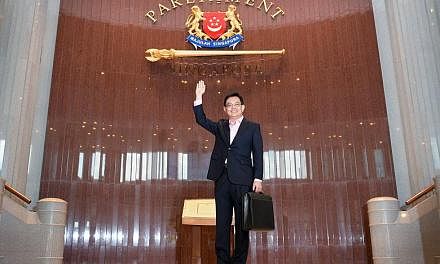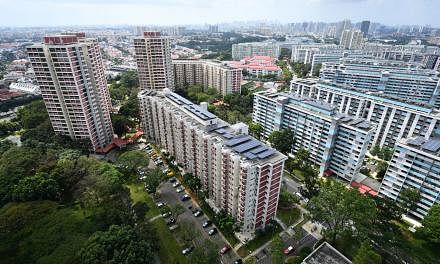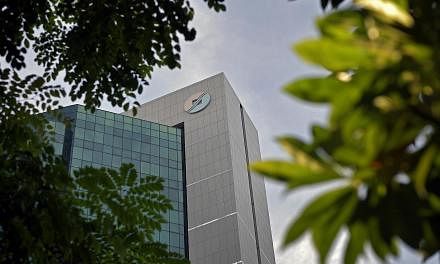Firms will get more government support to help them devise innovative solutions to business challenges.
The support will come in the form of tax relief for firms that buy solutions and for those that develop their own innovations or team up with partners.
To compensate for the expiry of the Productivity and Innovation Credit scheme this year, existing grant schemes that cover off-the-shelf products will be integrated into a Productivity Solutions Grant, which will provide funding for up to 70 per cent of qualifying costs.
Firms will also enjoy greater tax breaks. Tax deductions on licensing payments for commercial use of intellectual property (IP) will be raised from 100 per cent to 200 per cent, capped at $100,000, from next year to 2025.
Registering new IPs will also be cheaper: Tax deduction for IP registration fees will rise from 100 per cent to 200 per cent, capped at $100,000, also from 2019 to 2025.
Businesses building their own innovations and solutions will get tax deductions for research and development done in Singapore increased from 150 per cent to 250 per cent, over the same time period.
"We must make innovation pervasive throughout our economy," said Finance Minister Heng Swee Keat.
-
AT A GLANCE
-
• Pay rises for eligible employees will continue to be subsidised under the Wage Credit Scheme, which will be extended for another three years.
• The corporate tax rebate for companies will be doubled this year to 40 per cent of tax payable, capped at $15,000, up from $10,000.
• The corporate tax rebate will also be extended to the 2019 year of assessment, though at a lower rate of 20 per cent and capped at $10,000.
• The Asean Leadership Programme, to help business leaders build networks and expand their companies into South-east Asia, will be set up this year.
• An Infrastructure Office will be set up to bring local and overseas companies together to develop, finance and carry out infrastructure projects in the region.
The Government will help businesses find partners to collaborate and co-create new ideas with. It is piloting an Open Innovation Platform that will allow companies to crowdsource solutions online by posting challenges that can be addressed through digital solutions. The service will be ready in the second quarter of this year.
More efforts will be thrown into commercialising work generated by public sector research. The Government, along with Temasek Holdings, will put $100 million into a joint venture to grow companies that are developing IPs from publicly-funded research.
New transformation programmes for both the aviation and maritime sectors were announced.
"Our airport and seaport will become platforms for companies to develop, test and use new technologies," said Mr Heng.
The Government will provide support of up to $500 million for both programmes, with additional matching investment from industry partners.
Plans to build the capabilities of local firms and workers to be more productive, international and digitally equipped are in the works.
The TechSkills Accelerator (TeSa) programme, which trains infocomm technology professionals, will be expanded to new areas like manufacturing and professional services that are increasingly making use of digital services.
An additional $145 million will be set aside for TeSa over the next three years. It will be expanded to let people learn emerging digital skills, such as data analytics, artificial intelligence and cyber security.
Following the upcoming merger of Spring and IE Singapore in April, a new integrated Enterprise Development Grant will be formed.
This will combine the existing Global Partnership and Capability Development grants. It will provide companies with up to 70 per cent co-funding to build capabilities in scaling up and going international.
The double-tax deduction for internationalism will rise next year from $100,000 to $150,000 to help companies expand internationally.
There will be some adjustments to tax schemes for start-ups as well.
Starting from 2020, exemptions under the start-up tax exemption and partial tax exemption schemes will be restricted to the first $200,000 of chargeable income.
Start-ups will have only 75 per cent tax exemption, rather than the current 100 per cent, of their first $100,000 of chargeable income from corporate tax.
"Even with these adjustments, corporate tax will remain low for start-ups and smaller firms," said Mr Heng.

